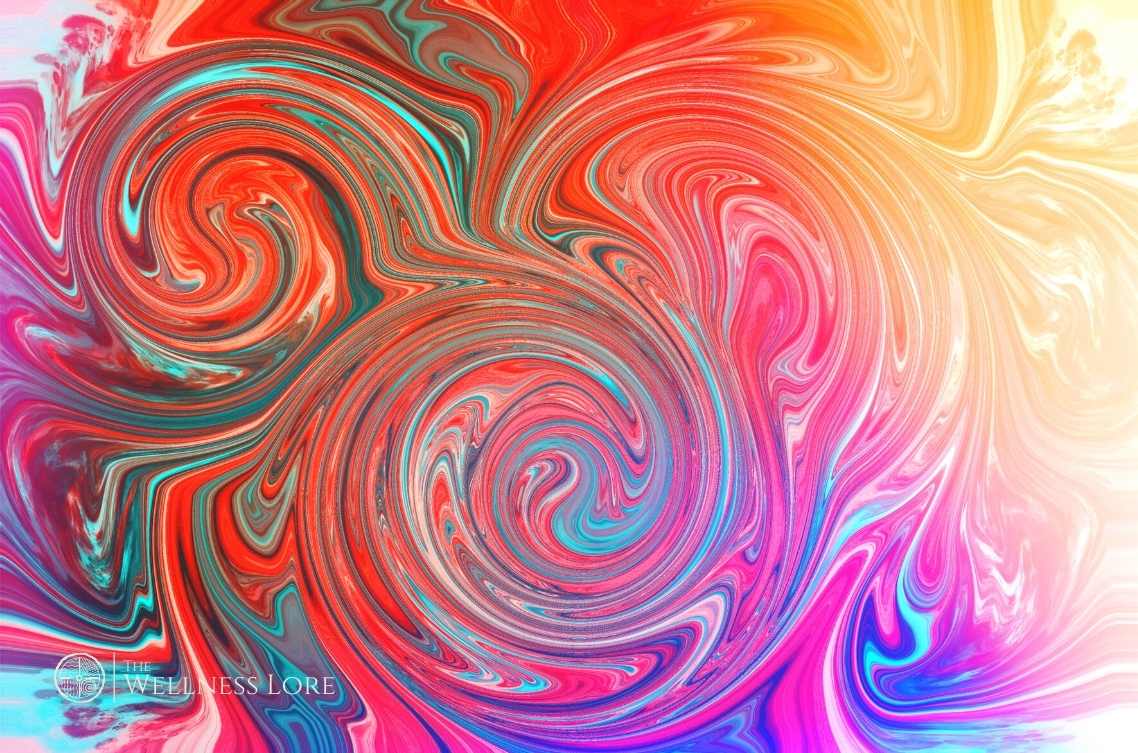Psychedelics: What are they, and what do they do?

Psychedelics are substances that can help with the therapeutic process. Psychedelic therapy has been shown to provide multiple benefits and has been used in holistic medicine and for different spiritual practices in various countries and cultures throughout history. Research into such substances and compounds gained much traction during the 1950s and 1960s. While some psychedelic drugs have been banned in a few countries, such as the US, their effectiveness in treating various health problems such as anxiety, depression, addiction, and others has been studied considerably.
There has been a steady development in conducting trials to use psychedelic substances to treat various conditions.
For example, various studies have shown that psilocybin, a psychedelic, can produce several positive effects on our overall well-being. Researchers have also gotten approval from authorities in several countries to conduct further research into how these substances could be utilized medically. It has been shown that if psychedelics are administered under supervision, they can produce long-lasting and substantial behavioral and psychological changes. Indigenous and rural communities have always used psychedelics for a very long time. However, this form of therapy is a relatively new development in the Western clinical setting.
What are the types of psychedelic therapy?
Psychedelic, as a term, is used to denote a group of substances that can produce many different behavioral and psychological effects. Psilocybin, DMT, peyote, Ayahuasca, and ibogaine are some psychedelic substances derived from plants. On the other hand, ketamine, MDMA, and LSD are chemical psychedelic compounds.
Ketamine:
This is one psychedelic drug that has been studied due to its potential use in mental health therapy. If administered in low doses, ketamine is beneficial in different trials as a treatment for depression. In individuals suffering from severe depression, research has shown significant improvement post-treatment, and the results of the ketamine treatment can last, on average, from 6 weeks up to 8 weeks. This research, various trials, and studies have led to the development of the drug, Spravato, which is a nasal spray to deliver the active ketamine substance. However, intravenously administering ketamine has shown to be more affordable and effective.
MDMA:
MDMA (or 3,4-methylenedioxy-methamphetamine) has been studied for efficacy. A few psychedelic effects produced by MDMA include feelings of euphoria, and increased sociability, among others. Researchers have conducted multiple phase 2 clinical trials regarding the subject. These trials have shown that MDMA is a possible treatment for PTSD (Post-traumatic stress disorder) for up to 4 years. Phase 3 trials, where scientists determine whether a particular treatment is more effective than the existing ones, have also commenced regarding MDMA therapy for PTSD patients.
These trials are also one of the first times a psychedelic-assisted therapy has undergone phase 3 trials. In the study, 90 severe PTSD patients were treated with MDMA-assisted therapy. Sixty-seven percent of those individuals were completely cured of their PTSD after three treatments, while 88 percent showed reduced PTSD symptoms. Multidisciplinary Association for Psychedelic Studies, the association sponsoring these trials, reiterated their belief for this therapy to gain FDA approval by 2023.
Psilocybin:
The primary compound found in magic mushrooms, psilocybin has shown positive results in treating depression and anxiety in terminally ill patients. This psychedelic has the potential to change moods, perception, and consciousness. Experts believe this compound has the potential to treat patients with obsessive-compulsive disorder (OCD), addiction, and depression.
LSD:
LSD or Lysergic acid diethylamide is a drug that can lead to altered perception, consciousness, and mood. It is a highly potent and long-lasting psychedelic drug that has been studied for its effects. Those studies have shown that LSD can help with alcohol addiction and anxiety. The effects can be even more pronounced in the case of patients suffering from terminal illnesses.
Ayahuasca:
The South-American plant-based psychedelic, Ayahuasca, is generally served in a brew. It is prepared using the leaves from the Psychotria Viridis shrub combined with the stalk of the vine, Banisteriopsis caapi. You can also several other plants and substances to the brew as well. Primarily, this drink has been used for religious and spiritual purposes by various Amazonian tribes since ancient times. It is still used as a sacred beverage by many Brazilian communities. The brew has become famous worldwide for its uses and benefits, such as healing from traumas and helping individuals open their minds further.
How to administer psychedelics?
There are no standardized methods or rules for administering psychedelic drugs, brews, or ingredients. Practitioners in the domain usually have unique ways and methods of administering psychedelic therapies. There are a few common themes surrounding those therapies, such as: administering a low to moderate dosage of the psychedelic drug, supervising the entire psychedelic experience by a trained professional, and finally, repeating the drug with one to two weeks of a gap between sessions.
The set and setting are vital and equally important during the administration session for a psychedelic therapy or drug. The set usually refers to the mood and expectations of the individual undergoing the therapy. In contrast, the setting refers to the environment where the session would take place and the relationship the patient, in this case, shared with their therapist. It is essential to make the relationship and the therapy room as comfortable as possible. The patient should also remain calm and attentive to gain maximum results.
Post-session, the next step is integration. The psychotherapy sessions through psychedelics are designed to make sense of, find meaning within, and help the entire individual process. The therapy process is unique for different psychedelic substances. For example, while MDMA-assisted therapy usually requires at least three sessions, ketamine-assisted therapy can be between a single to twelve sessions. Finally, LSD and psilocybin-assisted therapy typically require a couple of sessions, at the least, to produce the desired results.
Microdosing: An alternative form of psychedelic therapy?
Microdosing is a relatively recent development or variation in psychedelic therapy. In this therapy variation, small doses of psychedelic substances are administered. Supporters of this therapy suggest that these micro-doses produce several beneficial health effects, such as enhancing performance, increasing energy levels, and treating depression, among others.
How does the treatment work?
It has been observed that traditional medications for mental health disorders can take a long time to produce the necessary effects. Also, those medications predominantly work as long as they are regularly taken. Once stopped, the effects can wear off. On the contrary, psychedelic therapy has been shown to provide instant results and improvements, sometimes with just a solitary dosage. While significant studies are still in this domain, researchers have identified a few potential ways these substances can work.
Providing intense experiences
Historically, psychedelics have been used for spiritual and religious reasons. These substances have the power to create intense experiences that come off as signifying a deeper meaning. The influence of such a compound can alter an individual’s mindset or beliefs. These influences and experiences can help a person think or behave differently.
Making people more impressionable
Studies have shown that individuals being treated with psychedelics are more impressionable. This change can help make these persons more open to suggestions and advice from a therapist. Ingesting psychedelics also affects a person more through the intense experiences generated by these substances.
Alters neurotransmitters
Neurotransmitters are chemical substances in our brains. Most mental health medicines directly affect the neurotransmitters to alter our mood and perception. Certain psychedelic substances also do the same, changing how our brain behaves and, as a result, our moods.
What are the benefits of psychedelic therapy?
Research and trials on psychedelic substances have helped scientists discover several potential applications of psychedelic therapy and the benefits it could provide. The primary positive effects of such therapy are related to anxiety, substance use, depression, and PTSD.
Helps with terminally ill patients
Being diagnosed with a terminal illness can be very tough. Most patients face severe anxiety during the treatment, and this existential dread can severely affect the chances of a treatment succeeding. Too much stress might also lead to other related health problems. Psychedelic therapy can help ease anxiety in this condition. A 2016 study of 29 cancer patients with anxiety issues compared the effects of a single dosage of psilocybin and placebo treatment. The psychedelic significantly reduced cancer-related anxiety, stress, and dread over time.
After six and a half months, around 60 to 80 percent of the group which underwent the psychedelic therapy continued to report substantial alleviation of anxiety and depression. Another study conducted in the same year also found similar results. In that study, the group that took a relatively high dosage of psilocybin reported significant improvements in their mood and overall mindset. The improvements reported lasted even after six months of psychedelic therapy.
In both of these studies, the participants underwent spiritual or mystical experiences. Among the several cases, some individuals also shared that they had been able to envision death or divinity and feel a unique connection. All of these shared experiences helped the patients come to terms with their situation and helped in improving their mental well-being.
Alleviating anxiety and mood disorders
Psychedelics have the potential to alter our moods and help in treating depression. In a 2016 randomized, double-blind controlled trial experiment, researchers found that psilocybin-assisted therapy led to substantial alleviation of anxiety and depression in cancer patients undergoing treatment. A 2020 review of 24 prior studies on these drugs found that around 65% of those studies reported a decrease in anxiety when treated through psychedelic therapy.
In a different study the following year, 164 individuals were interviewed who reported having a psychedelic experience. The participants in the study shared that the experience had significantly reduced their depression, anxiety, and stress. They also felt increased compassion and were less likely to ponder endlessly on situations.
Finally, a 2017 study looked at patients suffering from treatment-resistant depression. Around twenty study participants suffering from severe depression were given two doses of psilocybin with a week’s gap between them. All the participants followed up on this treatment for six months. The researchers involved in the study found a substantial reduction in depression for the initial five weeks. At that point, nine different participants had responded to the treatment, while four had gone into remission. Having a unique psychedelic experience was also reported to show faster improvements.
Treating post-traumatic stress disorder (PTSD)
Research into psychedelic substance efficacy has uncovered its potential in treating PTSD. Mainly, MDMA-assisted therapy could be beneficial in psychotherapy treatments to cure PTSD. Trials and studies conducted on the effects of MDMA have shown its potential and effectiveness in curing PTSD patients in some cases or alleviating the symptoms at the least.
Helps with alcohol and substance abuse
Preliminary research has shown solid evidence that psychedelic substances such as LSD could help recover from substance abuse. Recent studies have backed up these claims that psychedelic drug-assisted therapy has considerable potential in addiction treatment and related therapies. A study conducted in 2016 suggested that psilocybin might lead to people quitting smoking. Ibogaine, another plant-based psychedelic substance, has also been shown by early research to have great promise in treating addiction.
So,
Psychedelics are potent substances that have shown substantial promise in treating various conditions, mainly related to mental health. Considerable research, studies, and surveys have shown psychedelic compounds to produce a range of favorable effects both on the body and mind. The intense experiences generated by such substances can shape and influence behavioral patterns. While being used historically across several countries, communities, and cultures, recent research has paved the way for psychedelics to be counted as a viable and effective alternative therapeutic substance. Both plant-based and chemical psychedelics can help in many cases and, if administered correctly, have huge potential. Relevant studies have also shown psychedelics helping with eating disorders, addiction, stress, anxiety, and many other issues. One of the most vital characteristics of such substances is that they provide instant effects compared to traditional medicine. These effects have also been shown to last for a long time. Over time, psychedelic therapies are expected to become more accessible and mainstream.
More Recent Stories



